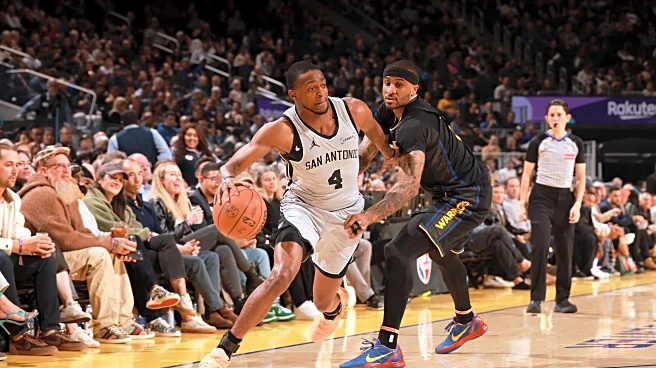What's Happening?
During Game 1 of the National League Championship Series, Milwaukee Brewers player Brice Turang faced criticism for dodging a pitch that could have tied the game against the Los Angeles Dodgers. With bases
loaded and the tying run on third, Turang moved out of the way of a 1-2 breaking ball, which many believed he should have allowed to hit him to score the run. Following this, Turang struck out, leading to a 1-0 victory for the Dodgers. Social media users were quick to criticize Turang's decision, calling it a lapse in judgment. Despite the backlash, Brewers manager Pat Murphy defended Turang, explaining the instinctive nature of avoiding a pitch. The incident has sparked discussions on the reflexive actions of players in high-pressure situations.
Why It's Important?
This event highlights the intense scrutiny athletes face during critical moments in major sports competitions. Turang's decision not to take the hit-by-pitch has implications for the Brewers' performance in the series, potentially affecting their chances of advancing. The criticism underscores the expectations placed on professional athletes to make strategic decisions under pressure. It also raises questions about the balance between instinctive reactions and strategic gameplay in baseball. The incident may influence how players approach similar situations in the future, considering both the physical risks and the potential game-changing outcomes.
What's Next?
Game 2 of the National League Championship Series is scheduled to take place in Milwaukee, where the Brewers will have another opportunity to level the series against the Dodgers. The team may reassess their strategies and player decisions in light of the recent criticism. Turang and his teammates will likely face increased pressure to perform and make strategic decisions that could impact the series outcome. The Brewers' response to this incident could influence their morale and gameplay in upcoming matches.
Beyond the Headlines
The incident with Turang may lead to broader discussions about the psychological aspects of sports, particularly how athletes manage instinctive reactions versus strategic thinking. It could also prompt teams to invest in training that helps players better handle high-pressure situations. Additionally, the event may influence fan perceptions of player accountability and decision-making in professional sports.










